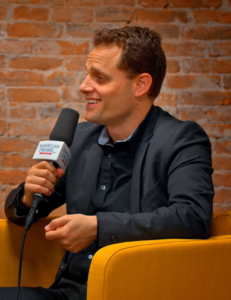Passion Investments: Why High-Net-Worth Individuals are Turning to Luxury Collecting
[vc_row][vc_column][vc_column_text]by Alan L. Olsen, CPA, MBA (Tax)
Mananging Partner
Greenstein, Rogoff, Olsen & Co.
Posted: 3/1/11
In times of economic uncertainty, bad news is good news for collectors and sellers. This uncertainty drives capital out of the stock market but at the same time, causes investments like art, wine and fine jewelry (among others) to enter the market. When typical investments are down, people sell their collectibles and when the stock market seems like a relative loser, art, wine, and fine jewelry can be great investments.
Record low bond yields and market volatility are causing investors to look elsewhere for investment opportunities. Tangible investments which yield a decent long-term return and provide enjoyment are becoming increasingly popular. These “passion investments” are typically rare, luxury items that the investor is passionate about owning and enjoying – from fine art to yachts.
The Capgemini and Merrill Lynch World Wealth Report 2010 found that high-net-worth individuals are returning to passion investment as “investor-collectors”, seeking out those items that are perceived to have tangible long-term value. According to the report, the two categories found to be the most attractive were art and “other collectibles” such as coins, antiques or wines.
Aside from the enjoyment of securing the ultra rare collectible piece, these long-term investments are proving to be a good way to diversify a portfolio:
During the first half of 2010 the Mei Moses All Art Index which tracks auction prices gained 13.5% compared with a 6.5% fall in the S&P500 index during the same period.
The Liv-ex Fine Wine Investables index, which tracks the price of fine wines from 24 chateaux in Bordeaux, was up 27.2% from the beginning of 2010 to the end of August.
In the first quarter of 2010, yacht brokerages closed nearly 30% more sales than a year earlier, with a 70% increase in valuation, according to a survey by UK broker Yachtworld.com.
As long as the financial environment remains uncertain, demand for tangible assets is likely to increase.
Tax Implications
Collectibles are taxed in two different tax brackets:
Short-Term Collectible Capital Gains Tax Rates: Collectibles held less than one year are taxed at personal income tax rates, just like short-term capital gains taxes on stocks or bonds.
Long-Term Collectible Capital Gains Tax Rates: Collectibles held one year or longer are taxed at 28%.
The IRS defines collectibles as:
• Stamps • Fine Art
• Coins • Precious Metals (Including Coins)
• Alcoholic Beverages (Like Fine Wine) • Precious Gems
• Rare Rugs • Antiques
For additional information please see our article Calculating Capital Gains Tax on the Sale of a Collectible at www.GROCO.com or contact Alan L. Olsen, CPA, MBA (Tax), Managing Partner of Bay Area CPA firm Greenstein, Rogoff, Olsen & Co., LLP at 510-797-8661.[/vc_column_text][/vc_column][/vc_row]
Trust Your Tax Return to the Professionals
A question millions of US citizens annually ask themselves prior to April 15th. Should you DIY or trust your tax return to the professionals? Every year many thousands of modest, honest and hardworking US citizens discover they owe the IRS still more money upon completion of their tax returns. It’s a lousy feeling. Now imagine,…
Dawn LeBlanc – Managing Director at Hartford InsurTech Hub
Dawn is the Managing Director at Hartford InsurTech Hub. She has Diversified expertise across insurance/financial products, innovation, marketing, regulatory, actuarial, operations, distribution and technology. Prior to joining Hartford InsurTech Hub she was the Vice President Business Solutions at Prudential Financial. Dawn attended Central Connecticut State UniversityWhere she received her Bachelor’s in Science in Mathematics/Actuarial
Avishai Ben-Tovim | CEO of MDI Health
Avishai Ben-Tovim is a sales & business development executive with years of professional experience and a drive to succeed and to innovate. He holds an IT Engineering degree from Ben-Gurion University of the Negev as well as an MBA from Tel Aviv University. Over the course of his career, he has worked extensively within the sales and technology sectors and held a variety of technical and management roles with companies like Kenshoo, eToro, Google and Roundforest, the latter of which he acted as
How Ellipsis Health Will Change Behavioral Health Diagnosis | Steven Cupps
AlanI’m visiting here today with Steven Cupps, he is the head of Business Development for Ellipsis Health. Welcome to today’s show.Steven Thank you so much for having me.AlanSo Steven, I’d like to hear the background of how you got to the position that you’re in today. What led up to this?StevenBehavioral health has always been a passion of mine. If you think about the entire ecosystem, and in healthcare, it’s really the biggest unmet challenge today. And so what we’re doing at ellipsis is we’re




